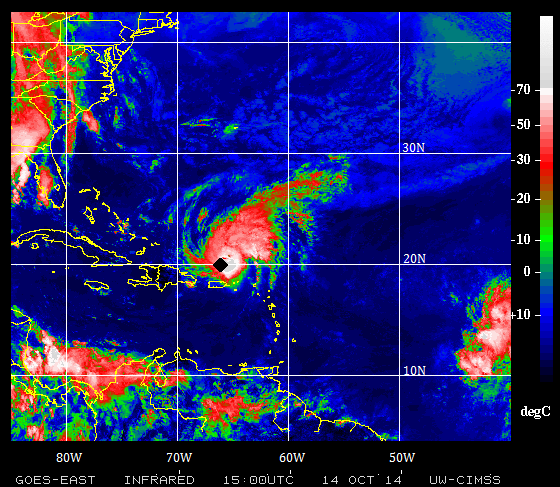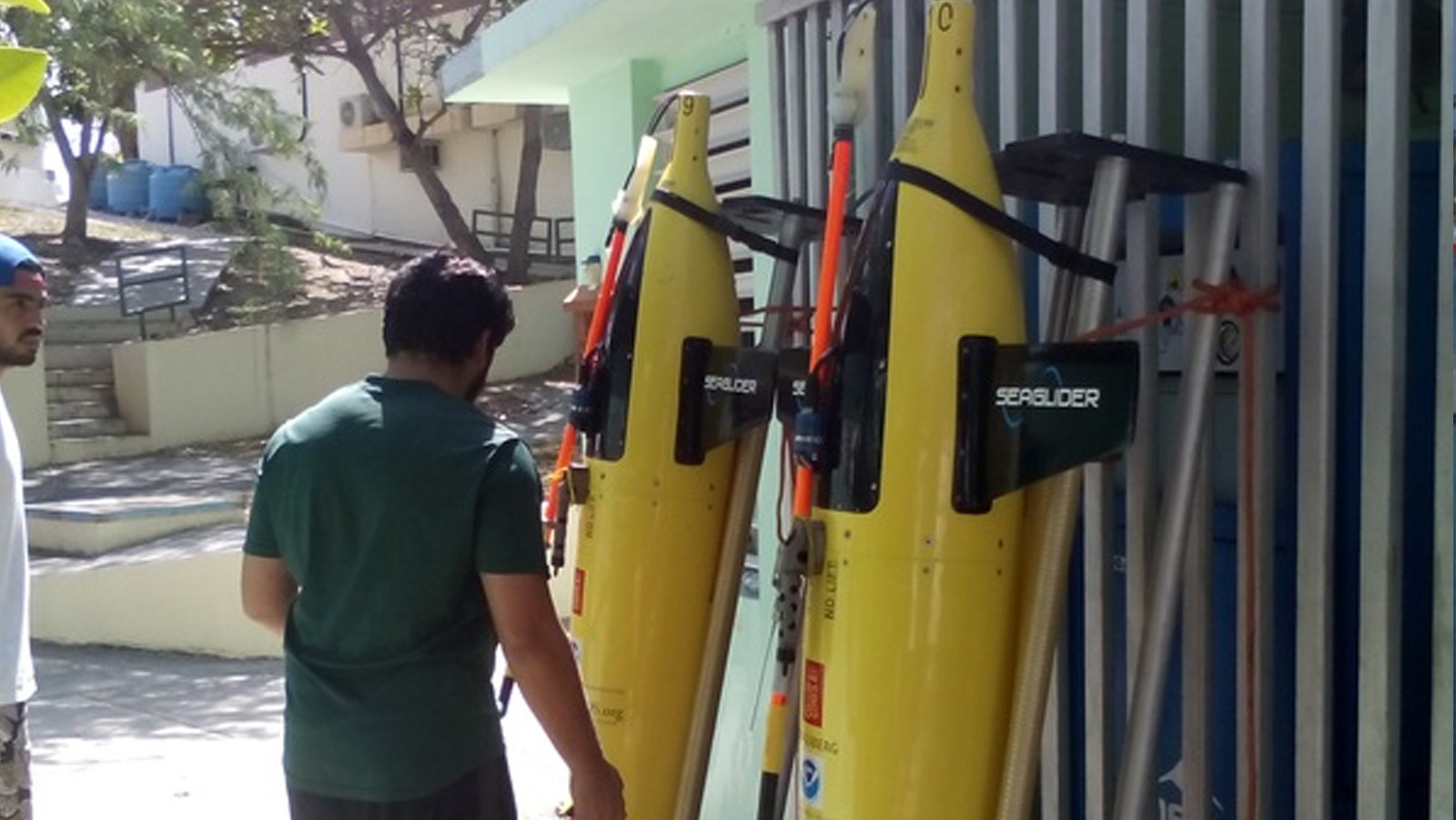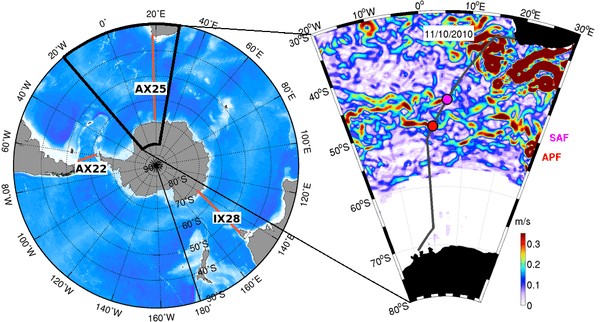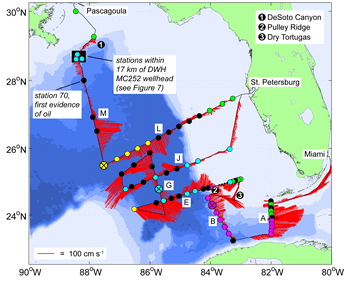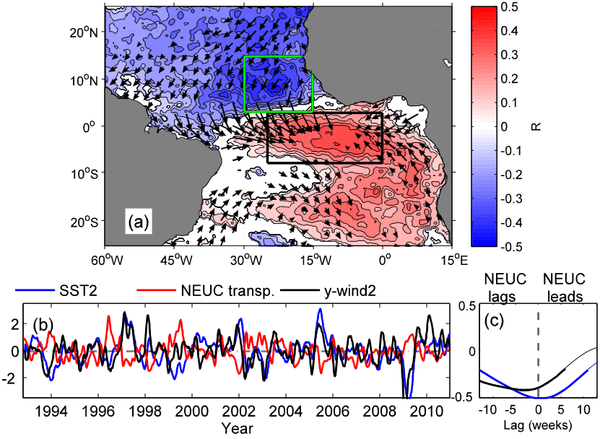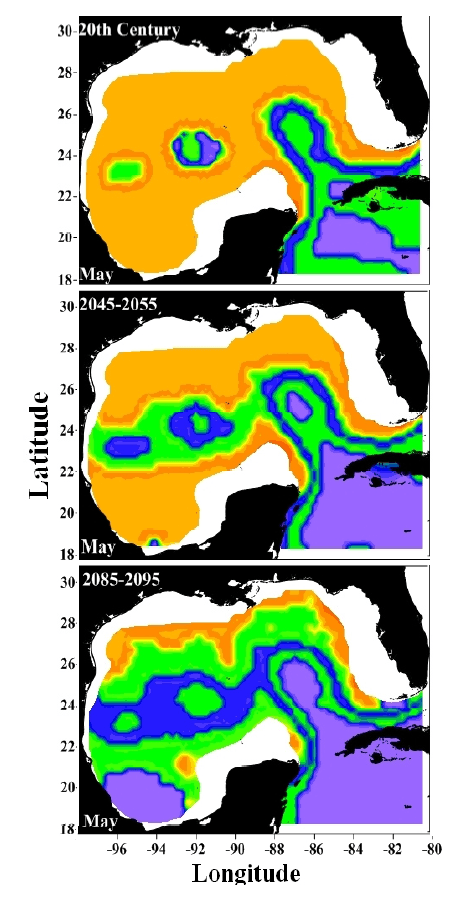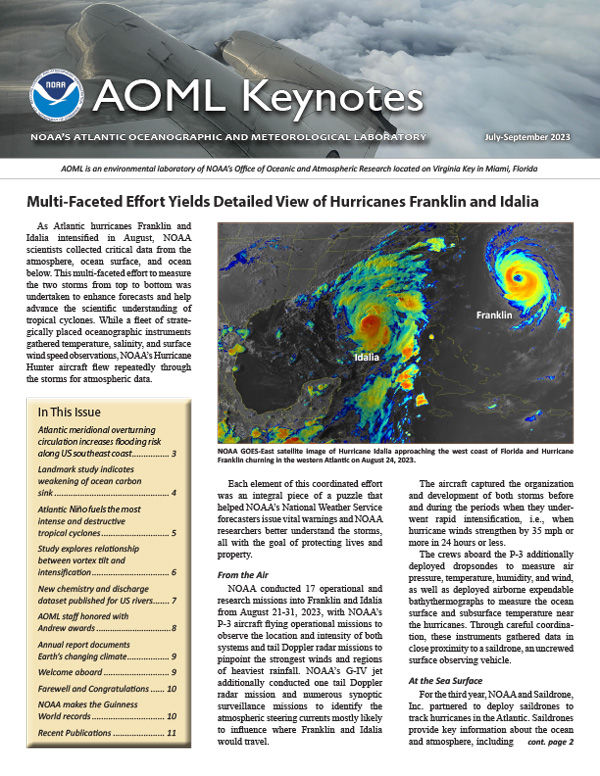Underwater gliders observations reveal the importance of salinity effects during passage of Hurricane Gonzalo (2014)
Hurricanes are known to drive the cooling of surface waters as they travel over the ocean, leaving a cooling swath where they pass. The sea surface cooling is mostly caused by mixing forced by the strong winds of the hurricane, which occurs as the mixture of warm surface waters with colder waters that can be as deep as 100 m below the surface.
